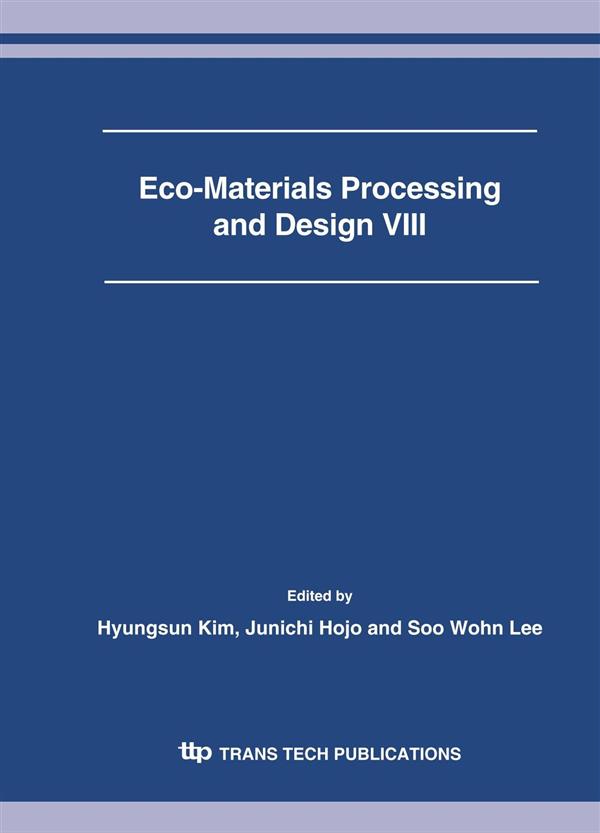Engineering Research
Materials Science
Engineering Series
Eco-Materials Processing and Design VIII
Description:
This up-to-date collection, “Eco-Materials Processing and Design VIII”, covers – on a global scale – the outstanding advances made in researching, producing and using eco-materials. It furnishes materials scientists and end-users with a valuable source of information and new concepts covering the complete spectrum of ecology, eco-materials, nano-materials, bio-materials, recycling, environmental protection and energy conversion related materials.
Purchase this book:
Info:
Review from Ringgold Inc., ProtoView:
Eco-materials go beyond merely being recycled or recyclable. They are created and constructed to support sustainability at all stages of their use, and they are designed to consider local or global ecological situations, materials recycling, environmental protection and energy conservation. These proceedings from the January 2007 symposium include dozens of papers for each general topic such as the use of photocatalysts to control air and water pollution along with deodorization, self-cleaning, power light sources and standards for reactivity; incorporation of end-of-life strategy into materials design; waste materials and the substitution of non-hazardous components for those that are hazardous; the philosophy of manufacturing with environmentally-friendly processes and design, including biomaterials; and energy-related materials and those that promote energy conservation.

